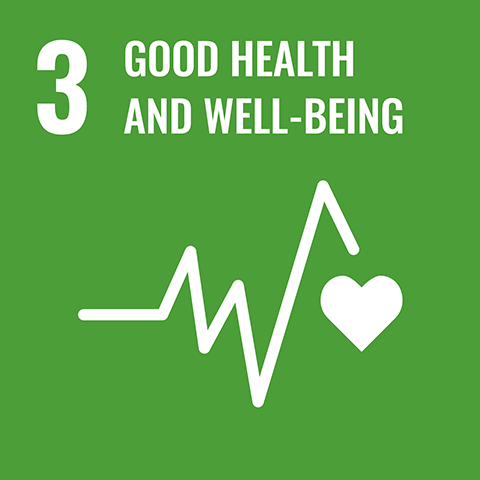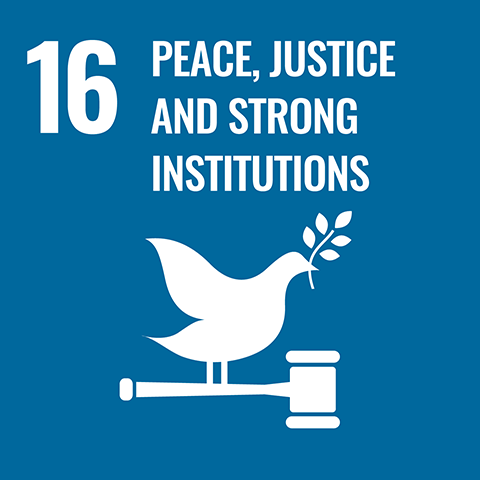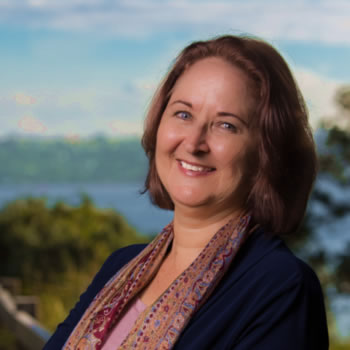Jury reasoning
Changing what we know about jury reasoning
UN Sustainable Development Goals
This research supports United Nations Sustainable Development Goals:


Child abuse is a deeply sensitive issue, and the way cases are prosecuted have real impacts on the lives of people involved. Charles Sturt University researcher Professor Jane Goodman-Delahunty and her colleagues have been conducting research to inform how cases with multiple accusations against a single person are dealt with.
There are concerns that juries will base their decision on impressions rather than on a logical analysis of the evidence, or that they'll be overwhelmed by the large number of counts against the defendant. We found that that was not the case.
– Prof Jane Goodman-Delahunty
The research
The Royal Commission into Institutional Responses to Child Sexual Abuse has recognised challenges in the way cases are prosecuted when a person is accused by multiple victims. Separate trials are usually ordered, based mainly on assumptions about the way juries reason when deliberating on evidence from multiple accusers. The concern is that separate trials have meant abusers escape conviction, partly because the jury never hears the full story.
Charles Sturt University's Prof Jane Goodman-Delahunty and colleagues investigated the reasoning processes of juries in 90 realistic simulated joint and separate trials of child sexual abuse. Mock jurors were more likely to convict a defendant in a joint trial compared to a separate trial involving a single complainant, but their reasoning processes showed no evidence of unfair prejudice.
This research is being discussed in the legal community, and is informing the Royal Commission, which is currently putting together recommendations about our criminal justice system’s response to child sexual abuse in institutional contexts. Initial steps have been taken which may, in time, see changes in the way in which complex child sexual abuse cases are prosecuted.
The Royal Commission into Institutional Responses to Child Sexual Abuse is raising public awareness of a deeply significant social issue in Australia and elsewhere. Charles Sturt University researcher Professor Jane Goodman-Delahunty, along with Professor Annie Cossins UNSW, and Charles Sturt University Research Associate Natalie Martschuk have been researching a complex issue encompassing psychological and legal issues, to contribute to the work of the Commission.
Their research responds to a matter identified by the Royal Commission: that single offenders often abuse multiple victims, especially in the context of institutions. When such cases are prosecuted, they are often divided into separate trials for different complainants, based on assumptions about how juries think and process evidence.
Their research tested the reasoning of juries while deliberating about multiple counts of child sexual abuse. Using 90 mock juries and a professionally acted trial involving charges of child sexual abuse in an institutional setting, they examined whether evidence of multiple offences (presented in joint trials or as tendency evidence) affects the ability of juries to make fair decisions.
Tendency and coincidence evidence, and when it should be admitted, is a contentious issue within the legal profession.
– Leigh Sanderson, Special Counsel to the Royal Commission
Program highlights
Large-scale jury research producing the most realistic results possible
Looking at the laws of evidence as they are applied in the NSW context, with relevance to other jurisdictions nationally and globally.
This research has been widely circulated and discussed extensively in the legal community
Program highlights
Large-scale jury research producing the most realistic results possible
Looking at the laws of evidence as they are applied in the NSW context, with relevance to other jurisdictions nationally and globally.
This research has been widely circulated and discussed extensively in the legal community
I think (the research findings apply) across the board to multi-charge trials … any case where you’d look at tendency evidence … We do it in fraud trials, we do it in drug trials, we do it in robbery trials.
– Kara Shead SC, Deputy Director of Public Prosecutions, Director's Chambers Office of the Director of Public Prosecutions NSW
Next steps
The next steps will be determined after the Royal Commission hands down its findings, and the Government's response to the final report.
Funding and collaborators

Jane Goodman-Delahunty
Charles Sturt University
Professor Jane Goodman-Delahunty is an experimental psychologist and lawyer. Her empirical legal studies foster evidence-based decisions to promote social, procedural and distributive justice within organisations and the community.
Funding and collaborators
In collaboration with Prof Annie Cossins (UNSW), Natalie Martschuk (Charles Sturt University Research Associate).
Funded by the Royal Commission into Institutional Responses to Child Sexual Abuse.
Charles Sturt University aims to create a world worth living in
This research is informing debate and contributing to developing communities with strong social frameworks, where diversity and harmony reside.
